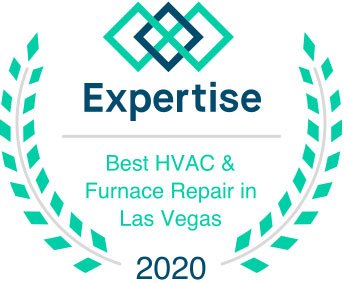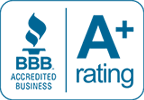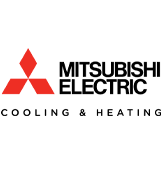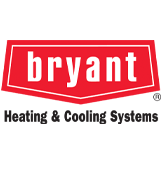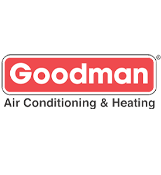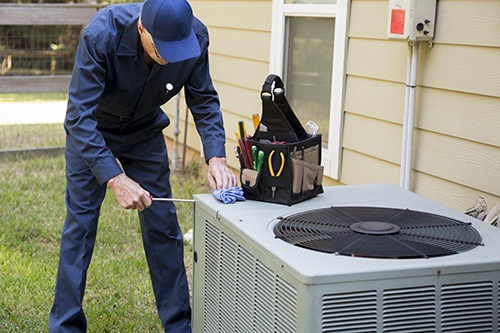
As the warmer months approach, we start to look forward to enjoying the longer days and all that summer has to offer. But with the rising temperatures comes the need for reliable air conditioning to keep our homes cool and comfortable. Just as we perform some annual spring cleaning around the house, it’s essential to prepare your air conditioning system for its busiest season. The following are necessary steps to take to ensure your air conditioner is running efficiently and effectively so that you can relax and enjoy the heat without any unexpected hiccups.
1. Schedule a Professional Tune-up
Your air conditioning system endures a lot through the years, with the accumulation of dust, debris, and wear and tear from constant use. Moreover, if you haven’t used your system in a while, there’s a good chance that dirt and other particulates have settled within its components.
Over time, this build-up can impair the system’s function, causing it to work harder, consume more energy, and provide less comfort than it should. Therefore, a professional tune-up is necessary to clean and inspect the overall health of your AC system, identifying potential issues and optimizing its performance.
AC systems are complex machines with many intricate components that require expert knowledge to handle and repair. Hiring a professional ensures that the job is done correctly and safely, identifying and addressing issues that could lead to costly repairs or a complete system breakdown. Furthermore, many manufacturers require regular professional maintenance to keep warranties valid, so it’s essential to check your warranty terms and conditions.
Scheduling a professional AC tune-up provides myriad benefits, including improved efficiency, reduced energy bills, enhanced indoor air quality, and extended system lifespan. When your unit operates at peak performance, it uses less energy, subsequently lowering your energy bills. Furthermore, clean and well-maintained systems are less prone to breakdowns, reducing the likelihood of expensive repair or replacement costs. Lastly, a properly functioning AC system filters the air in your home, minimizing allergens, pollutants, and dust, which promotes a healthier living environment for you and your loved ones.
2. Check the Air Filters and Replace Them As Needed
Air filters are responsible for trapping pollen, pet dander, dust, and other airborne particles that can trigger allergies, asthma, or other respiratory issues. By filtering out these contaminants, air filters help to provide clean and fresh air for you and your family to breathe. Furthermore, clean air filters protect the components of your air conditioning system from the accumulation of dust and debris, which can cause wear and tear, reduce efficiency, and lead to costly repairs or even system failure.
Filter inspections should be performed on a monthly basis, particularly during the peak summer months when the air conditioning system is used more frequently. The visible buildup of dust and debris on the air filters is a clear indication that they need to be replaced. It is generally recommended to change your air filters every 30 to 90 days, depending on factors such as pet presence, allergy concerns, or the type of filter used.
Choosing the correct type of air filter for your system is another important aspect of this process. There are various types of filters available on the market, from basic fiberglass filters to more advanced pleated filters and HEPA filters. Each type has its own advantages and filtration capabilities.
High-performance filters, for instance, may offer better allergen and particle capture rates but may also place greater strain on your air conditioning system because of the increased airflow resistance. Consult your air conditioner manufacturer’s recommendations or a professional HVAC technician to determine the most suitable filter for your system and your specific needs.
3. Ensure That All Hoses, Pipes, and Ducts Are Free of Obstructions
Hoses, pipes, and ducts play a key role in efficiently transferring air from one place to another within your air conditioning system. They do this by transporting refrigerant gas from one component of the system to another. If these components are blocked or obstructed, it can cause problems with the performance of your air conditioner such as reduced airflow or decreased cooling efficiency.
The best way to check for obstructions is to visually inspect each component in your system. This includes checking for any dirt or debris buildup inside hoses and pipes that could potentially reduce flow or cause damage over time. Additionally, you should also check for any signs of corrosion around seams or joints that may indicate a leaky pipe or hose. If you notice any type of obstruction or sign of corrosion while inspecting your system’s hoses and pipes, then it’s best to get them professionally cleaned or replaced right away before they cause further damage down the line.
4. Inspect for Any Leaks in Your System
Inspecting your air conditioning system for leaks is a crucial step in preparing it for the summer months. This process involves checking various components, such as the refrigerant lines, evaporator coils, and drain pans, for potential issues that could hinder the system’s performance.
One primary reason to inspect for leaks is to ensure optimal energy efficiency. Leaks can cause your system to work harder, consuming more energy and increasing your utility bills. Identifying and fixing leaks in a timely manner can result in significant savings over the season.
Furthermore, detecting leaks allows for the proper maintenance of your air conditioning system. Leaks, especially in refrigerant lines, can lead to diminished cooling capabilities, causing your system to struggle to maintain a comfortable temperature. Addressing these issues early on can prevent more serious problems and prolong the life of your air conditioner.
Regular inspection for leaks can also improve the indoor air quality within your home. Leaking air conditioning units can harbor mold and bacteria, which may circulate through your home’s air system. By identifying and resolving these issues promptly, you can help maintain a healthier indoor environment for you and your family.
Lastly, inspecting for leaks contributes to the overall safety of your home. Refrigerants used in air conditioners can be hazardous if not handled properly, and a leaking system may pose a risk to both humans and the environment. By checking for leaks and repairing them promptly, you can minimize any potential dangers associated with your air conditioning system.
5. Make Sure That There Is Adequate Insulation Around the Outdoor Unit
Poorly insulated units are much more likely to underperform as well as experience additional wear and tear from extreme temperatures. Make sure to check not just the insulation around the unit itself but any pipes leading to or from it too. A specialist can help with installation and should be able to diagnose any other issues that might be affecting performance or energy efficiency.
Get in Touch With Professionals Today!
If you’re looking for reliable heating and cooling services, look no further than Polar Air & Heating, Inc.. Our team of experts is committed to providing exceptional service throughout Las Vegas and the surrounding areas with customizable air conditioning, indoor air quality, and heating services tailored to your needs.
Not only do we guarantee superior installation, repair, and maintenance, but did you know that we also offer air filtration services? Our trained technicians use the most advanced tools to ensure that your system is operating at peak performance throughout the year. Call Polar Air & Heating, Inc. today to learn more about our services.


